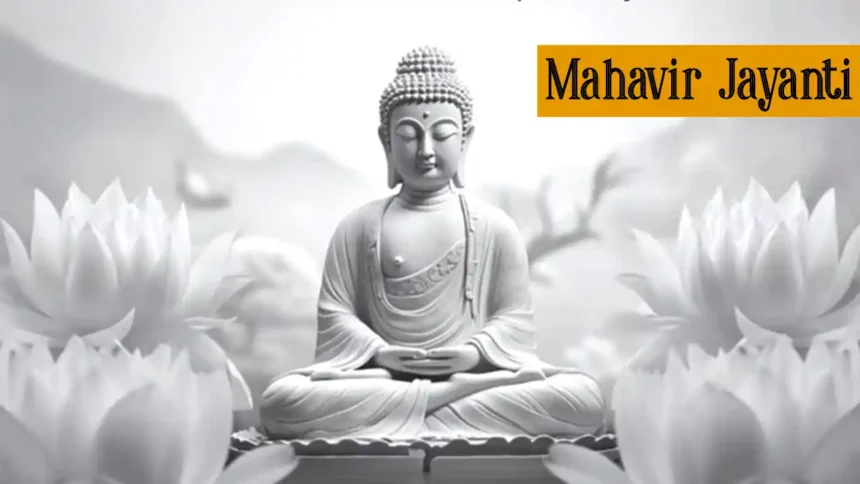Mahavir Jayanti: Celebrating the Birth of Lord Mahavir and His Timeless Teachings
Mahavir Jayanti is one of the most important festivals in Jainism. It marks the birth of Lord Mahavir, the 24th and last Tirthankara (spiritual teacher) of Jainism. This day is celebrated with great devotion by Jains all over the world. People visit temples, offer prayers, and participate in processions to honor Lord Mahavir’s life and teachings.
But who was Lord Mahavir? Why is his birth celebrated with such enthusiasm? And what can we learn from his teachings today? Let’s explore the significance of Mahavir Jayanti in detail.
Who Was Lord Mahavir?
Lord Mahavir, also known as Vardhamana Mahavir, was born in 599 BCE (according to Jain tradition) in Kundagrama, near modern-day Bihar, India. His parents were King Siddhartha and Queen Trishala. From a young age, Mahavir showed signs of greatness. According to Jain texts, his mother had 14 auspicious dreams before his birth, which were interpreted as signs of a great soul entering the world.
At the age of 30, Mahavir left his royal life in search of spiritual truth. He practiced intense meditation and austerity for 12 years before attaining Kevala Jnana (supreme knowledge). After enlightenment, he spent the next 30 years teaching the principles of Ahimsa (non-violence), Satya (truth), Asteya (non-stealing), Brahmacharya (chastity), and Aparigraha (non-attachment).
How is Mahavir Jayanti Celebrated?
Mahavir Jayanti is celebrated with deep religious fervor. Here’s how Jains observe this sacred day:
- Temple Visits & Prayers
- Devotees visit Jain temples to offer prayers and recite sacred texts.
- Many observe fasting and meditate to purify their minds.
- Rath Yatra (Procession)
- A grand procession is carried out with an idol of Lord Mahavir placed on a chariot.
- People sing devotional songs and chant prayers during the procession.
- Charity & Community Service
- Jains believe in giving back to society, so many organize free medical camps, food distribution, and animal care events.
- Lectures & Discourses
- Spiritual leaders give speeches on Lord Mahavir’s teachings, emphasizing non-violence and compassion.
The Core Teachings of Lord Mahavir
Lord Mahavir’s philosophy revolves around inner peace, non-violence, and self-discipline. Here are some key lessons from his life:
1. Ahimsa (Non-Violence)
- Mahavir taught that all living beings, no matter how small, deserve respect.
- Jains follow strict vegetarianism and avoid harming any creature.
2. Truth & Honesty (Satya)
- Speaking the truth is essential for a pure and peaceful life.
- Lies create karma and hinder spiritual growth.
3. Non-Attachment (Aparigraha)
- Mahavir believed that material possessions lead to greed and suffering.
- Letting go of unnecessary desires brings true happiness.
4. Self-Control & Discipline
- Through meditation and self-restraint, one can achieve liberation (Moksha).
Why is Mahavir Jayanti Still Relevant Today?
In today’s fast-paced world, Mahavir’s teachings offer solutions to many modern problems:
- Environmental Protection – His emphasis on non-violence aligns with eco-friendly living.
- Stress & Mental Peace – Meditation and minimalism reduce anxiety and improve well-being.
- Ethical Living – Truthfulness and non-stealing promote trust in society.
Conclusion
Mahavir Jayanti is not just a religious festival—it’s a reminder of the timeless values of peace, truth, and compassion. Lord Mahavir’s teachings continue to inspire millions to live a life of non-violence and self-discipline. Whether you follow Jainism or not, his wisdom can help create a better, more harmonious world.
This Mahavir Jayanti, let’s reflect on his message and strive to make our lives more meaningful.
FAQs About Mahavir Jayanti
1. When is Mahavir Jayanti celebrated?
- It falls on the 13th day of the Chaitra month (March/April) in the Hindu calendar.
2. Is Mahavir Jayanti a public holiday in India?
- Yes, it is a public holiday in several states, including Gujarat, Rajasthan, and Maharashtra.
3. What is the difference between Mahavir Jayanti and Diwali in Jainism?
- Mahavir Jayanti celebrates his birth, while Diwali marks his attainment of Nirvana (liberation).
4. Do Jains celebrate Mahavir Jayanti with fireworks?
- No, Jains avoid fireworks as they believe in non-violence and minimizing harm to living beings.
5. How can non-Jains participate in Mahavir Jayanti?
- By learning about Jain principles, practicing kindness, and supporting charitable activities.









